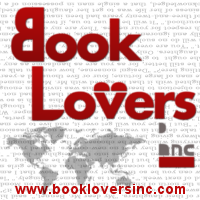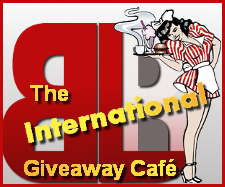Book Lovers Inc.
Romance Novel Reviews, Author Interviews, Commentary
Genres 101: Today’s Lesson – Humour
There is nothing better to get you out of a funk than something that will make you laugh, so this week, as I battle a head cold in scary humid weather, I thought we’d take a look comedic writings. I need a good laugh right now. Normally, I stick with fiction but I figured it would be nice to add in a few non-fiction examples in this category also.
The big thing is: what makes us laugh? I have a strange sense of humour at times, so for me, sarcasm and irony blended with intelligent writing are the best mix to tickle my funny bone. Defined by Wiki (I’m going to briefly paraphrase here), Comic Fiction is writing that is meant to amuse the reader while making them think about controversial issues, using subtlety, puns, and a carefully crafted narrative style. I’m not sure if I completely …
 Genres 101,The Quirky Lover
Genres 101,The Quirky Lover  8 Jun 2011
8 Jun 2011
 7 comments
7 comments
Genres 101: ‘Let’s Talk About Sex, Baby’…(Today’s Lesson: Erotic Fiction)
I was deeply engrossed in a novel last night, that had me alternating between giggles and having to fan myself from the heat, so naturally today I have s-e-x on the brain. I thought this would be a great time to take a look at Erotic Fiction, a genre that can range from fairly mild encounters to all out…well, everything.
I remember long ago (I was about 12 years old), finding a stash of paperback books that had the most outrageous content I had ever read. That’s not saying much, really, having most recently read things like Madeleine L’Engle and The Hardy Boys. But finding these stories full of engorged male parts and other scintillating elements was like pure gold during that delicate part of puberty. Since then, I’ve at times steered clear of erotic fiction and …
 Genres 101,The Quirky Lover
Genres 101,The Quirky Lover  25 May 2011
25 May 2011
 6 comments
6 comments
Genres 101: Long Ago and Far Away (Today’s Lesson: Historical Fiction)
It seems as readers we have a fascination with the past that encourages today’s writers to continue bringing us fresh ideas from the past (that sounds funny, doesn’t it?) For several millenia, the world has been taking notes, creating a tangible record for us to look back on and see where we all came from. And for nearly as long, works of fiction have been created and are still enjoyed to this day. When we hear the term “Historical Fiction“, it can mean different things to readers. Whether we’re talking about works by Sophocles or Sarah MacLean, they all fit into this huge genre, with many subcategories that cover all manner of romance, wars, and moral lessons, to name just a few elements.I’m sure as Aristotle, Sophocles, and others of that ilk were sitting down writing their works on moral treatise that they …
 Genres 101,The Quirky Lover
Genres 101,The Quirky Lover  14 May 2011
14 May 2011
 7 comments
7 comments
Genres 101: Today’s Lesson "Occupational Fiction"
Today, we’re going to take a look at books about jobs. For all of those reading with jobs, this just reminds you of work, right? None to thrilling, but hopefully we can change the way we see things as we envision “work” through the imagination of some of our favourite authors.
There are all types of employment out there, but the tricky part in this area is finding occupations that are worthy of writing (and reading) about. Here are the major categories that fall under this ho-hum seeming genre:
Hollywood Novel: These books are recognized by their setting, Southern California, and the main theme involving the movie industry. Examples here would be The Last Tycoon by F. Scott Fitzgerald and Hollywood Wives by Jackie Collins. This seems like a fairly wide scope when you …
 Genres 101,The Quirky Lover
Genres 101,The Quirky Lover  27 Apr 2011
27 Apr 2011
 4 comments
4 comments
Genres 101: Today’s Lesson "Science Fiction"
Today, we’ll finally take a look at Science Fiction. We talked before about the difference between Sci-Fi and Fantasy, with Sci-Fi being more firmly based on logic and what is plausibly believable. While Wiki says science fiction dates back from at least the 2nd century, with roots in mythology, it’s easy to understand that as our world has become increasingly technical, the fictional representations and future prospects have been opened up exponentially to authors.
This is a genre chock full of famous names: H.G. Wells, Jules Verne, Mary Shelley, Arthur C. Clarke, Isaac Asimov. And that’s only a drop in the bucket! It is also just the jumping off point for the many sub-genres that can be said as having certain characteristics of Sci-Fi, but with various other elements. Punk was a major …
 Genres 101,The Quirky Lover
Genres 101,The Quirky Lover  13 Apr 2011
13 Apr 2011
 7 comments
7 comments
Genres 101: The world is ending!! (A.K.A. Dystopian and Apocalyptic Fiction)
As you may have noticed, Speculative Fiction is a pretty large bag of mixed tastes. Today, I thought (since I’m currently reading Wither by Lauren DeStafano and have recently read other books that fit into these categories) that we’d take a look at Apocalyptic, Dystopian, and, because it usually is linked with dystopian, the Utopian novel, too. Utopian aside for a moment, the other two sub-genres have a fairly common element: life is bleak, if there’s still any life around.
First up, there’s Apocalyptic and Post-Apocalyptic Fiction. Apocalyptic novels, by definition, are set as the end of civilization is iminent, be it from plague, nuclear war, impending disaster (as I write this I have Aerosmith singing “I Don’t Wanna Miss a Thing”, in my head, as a large meteor is …
 Genres 101,The Quirky Lover
Genres 101,The Quirky Lover  30 Mar 2011
30 Mar 2011
 10 comments
10 comments
Genres 101: Today’s Lesson "Punk"
Today, I’m going all out Punk…I’ve dyed my hair green and spiked it, now we’re really ready to rock! Oh, wait….wrong Punk. In our last talk, I mentioned “Splatterpunk” which was a subgenre of Horror, but there is a separate part of the Speculative Fiction category that encompasses many other Punk types. It seems it started out with the term “Cyberpunk“, thought up by Bruce Bethke in the early 1980’s, which blends cybernetics with the punk music of the originating time. It’s essence is about a type of technology that has become highly evolved, for example blending humans with computers and usually occurring in a dystopian society. The first thing that comes to mind here are those scary, crazy Cyborgs in Star Trek….Yes, I’m a trekkie and a trekker (and I know the difference, lol). There are a bunch of movie versions of this genre …
 Genres 101,The Quirky Lover
Genres 101,The Quirky Lover  16 Mar 2011
16 Mar 2011
 9 comments
9 comments
Genres 101: Today’s Lesson "Horror"
I want to thank everyone for the awesome feedback on these posts! It’s fun learning and sharing the info with you!
For the next little while, I’ve decided to stick within the Speculative Fiction category because there just so many levels, that I feel it needs special attention. Today, I want to focus on Horror. The first thing that comes to mind, for me, under this title is Stephen King. For me he embodies the dark, scary stories that are synonymous with horror. What I was surprised to learn through my research is that a) horror , though created long ago, was a genre revived in the eighteenth century, largely with a female audience in mind and written by women and b) one of my fave types of literature, the Gothic novel, also falls within the realm of horror.
 Genres 101,The Quirky Lover
Genres 101,The Quirky Lover  2 Mar 2011
2 Mar 2011
 9 comments
9 comments
Genres 101: Today’s Lesson "Fantasy"
Thanks to the inimitable pattepoilue, our new feature has a better name: Genres 101. I hope everyone is seated comfortably, with pencil and paper ready, as we begin the first in our series of lectures (ok, I might be stretching that a bit but just go with me, k?) on the definitions and applications of genre names.
The main common denominator in all of these seemingly similar, imaginative, genres is that they all fall under the “Speculative Fiction” label. I mentioned before, that for Spec Fic, I always think of the question “What if?” as the determining factor in placing a book in this category. But there are so many answers to that question, that we must break it down separately. Today’s lesson will cover all (most?) things under the realm of “Fantasy.”
For me, I’ve always linked Fantasy and Science …
 Genres 101,The Quirky Lover
Genres 101,The Quirky Lover  16 Feb 2011
16 Feb 2011
 15 comments
15 comments












 Blog RSS Feed
Blog RSS Feed Follow Me on Twitter
Follow Me on Twitter My Facebook
My Facebook